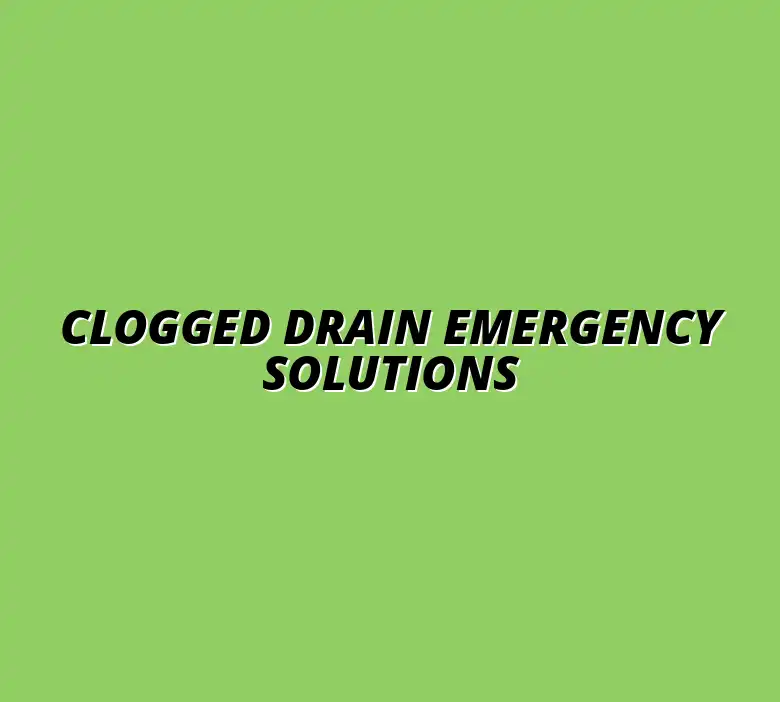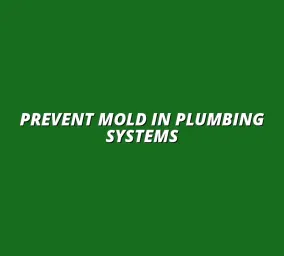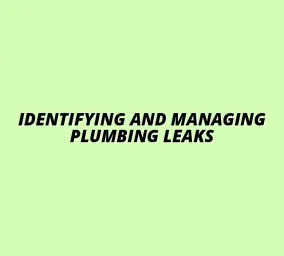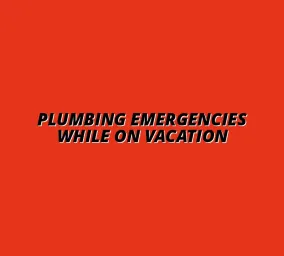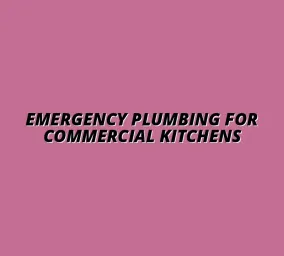Clogged Drain Emergency Solutions
Understanding Plumbing Emergencies and Their Impact on Daily Life
Plumbing emergencies can strike unexpectedly, causing significant disruption to our daily lives. A burst pipe or a backed-up drain can lead to water damage, costly repairs, and even health hazards. For homeowners, understanding what constitutes a plumbing emergency is crucial for effective management and timely intervention. Knowing the urgent plumbing emergency warning signs can help you react quickly.
Essentially, a plumbing emergency refers to any situation that requires immediate attention to prevent further damage or safety risks. These situations can range from severe leaks and flooding to complete loss of water supply. Being able to identify these emergencies not only saves time but also minimizes stress and potential costs.
Defining Plumbing Emergencies: What Does it Mean for Homeowners?
For homeowners, a plumbing emergency often means dealing with unexpected inconveniences that disrupt normal life. Examples include sudden leaks, overflowing toilets, or malfunctioning water heaters. A simple leaking faucet can quickly turn into a larger problem if not addressed promptly. These issues often require immediate action to mitigate damage and restore functionality.
One key to managing plumbing emergencies is recognizing their symptoms. The sooner you identify a problem, the quicker you can take action or seek professional help. Knowing what qualifies as an emergency can empower homeowners to act decisively when disaster strikes.
- Severe leaks or bursts in pipes
- Overflowing toilets or sewage backups
- No hot water from your heater
- Signs of water damage on ceilings or walls
The Role of Clogged Drains in Plumbing Emergencies
Clogged drains are one of the most common plumbing issues that can escalate into emergencies. When water doesn't flow as it should, it can lead to overflowing sinks or even flooding. This often happens when debris accumulates, blocking the pipes and preventing drainage.
Clogged drains can cause a ripple effect throughout your home, affecting multiple fixtures and creating a major inconvenience. For example, a clogged kitchen sink can be easily addressed with the right techniques. Learn how to fix a clogged kitchen sink to prevent further issues. It's essential for homeowners to stay vigilant and address minor clogs before they develop into serious plumbing emergencies. Regular checks can help catch potential issues early.
- Hair, soap, and grease buildup in sinks
- Food particles accumulating in kitchen drains
- Tree roots invading sewer lines
Identifying Signs of a Clogged Drain
Recognizing the signs of a clogged drain early can prevent a small issue from turning into a big problem. Homeowners should be aware of common symptoms that indicate a blockage. By staying alert to these signs, you can take action before a plumbing emergency occurs.
Often, the first noticeable changes in your plumbing will come from how water flows through your fixtures. If you experience slow-draining water or persistent gurgling sounds, it’s time to investigate further. Ignoring these signs can lead to more serious consequences down the road. A simple plunger can often solve the problem, here is a guide on how to unclog your sink with a plunger.
Preventative Measures to Avoid Future Plumbing Emergencies
Preventing plumbing emergencies requires a proactive approach that every homeowner can adopt. By understanding and implementing simple preventative measures, you can save yourself from the stress and expense of severe plumbing issues down the line. Let's dive into some effective strategies that can keep your drains clear and your plumbing system running smoothly.
It's essential to recognize that a little routine maintenance can go a long way in avoiding future problems. Regular drain cleaning offers many essential benefits. With a consistent maintenance plan, you can enjoy peace of mind knowing your plumbing is in good shape. Remember, prevention is always better than having to deal with a plumbing crisis!
Routine Maintenance: Proactive Steps for Homeowners
Regular maintenance is key to ensuring your plumbing system works effectively. It’s important to establish a routine that includes checking for blockages and cleaning your drains. Here are some proactive steps you can take:
- Schedule regular drain cleaning every few months.
- Inspect drainage systems and pipes for signs of wear or leaks.
- Utilize enzyme-based cleaners monthly to break down buildup.
Finding problematic areas in your plumbing system can help you address issues before they escalate. Knowing where your weak spots are will allow you to focus your attention where it’s most needed. This can save you both time and money! For example, knowing how to easily unclog your bathroom sink can prevent a minor issue from becoming a major headache.
Regular Drain Cleaning: Techniques and Frequency
Cleaning your drains regularly can help avoid clogs before they become emergencies. Depending on your household's usage, I recommend cleaning your drains every 1-3 months. Here are some effective techniques:
- Use a mixture of baking soda and vinegar for a natural clean.
- Flush drains with hot water weekly to remove grease.
- Employ a plumbing snake for tougher clogs.
By incorporating these techniques into your routine, you can maintain clear and functioning drains, ensuring your plumbing remains in great condition!
Identifying Problematic Areas in Your Plumbing System
Identifying trouble spots can prevent larger issues from developing in your plumbing system. Take the time to inspect areas that commonly face problems, such as:
- Kitchen sinks, especially where food waste is disposed.
- Bathroom sinks and shower drains, which may accumulate hair and soap.
- Outdoor drains that can get clogged with leaves and debris.
By regularly checking these areas, you can catch potential issues before they become major headaches! If you require professional help, consider contacting a plumber in Drifford, Birmingham.
Educating Household Members on Proper Drain Usage
It’s vital to educate everyone in your household about proper drain usage to reduce the risk of clogs. Awareness about what can and cannot go down the drain can save you from future problems. Here are some important points to share with your family:
- Explain why certain items, like wipes and grease, should never be flushed.
- Discuss the importance of using drain catchers in sinks and tubs.
- Encourage everyone to be mindful of what goes down the kitchen drain.
Having these conversations can foster good habits that protect your plumbing. It’s a team effort!
What Not to Flush: A Guide for Families
Knowing what not to flush down your toilet is crucial in preventing clogs. Here’s a list of items that should never make their way into your toilet:
- Baby wipes, even those labeled as "flushable."
- Feminine hygiene products.
- Paper towels and tissues.
- Q-tips and cotton balls.
By following these guidelines, you can help ensure that your plumbing remains clog-free and functional!
Best Practices for Food Waste Disposal
Proper disposal of food waste is essential to prevent kitchen drain clogs. Here are some best practices to follow:
- Use a compost bin for vegetable scraps and peels.
- Scrape plates into the trash before rinsing.
- Avoid putting fibrous foods like celery and potato peels down the drain.
Implementing these practices not only keeps your plumbing running smoothly, but it also promotes a more eco-friendly approach to waste management!
Frequently Asked Questions about Clogged Drains
As a homeowner, you might have questions about clogged drains and how to handle them. Understanding the causes and solutions can help you take the right actions when confronted with plumbing issues. Let’s explore some common FAQs!
What Causes Clogged Drains Most Often?
Clogs often occur due to a build-up of materials that shouldn’t be in drains. Common culprits include:
- Hair and soap scum in bathroom drains.
- Food particles and grease in kitchen sinks.
- Mineral deposits in older plumbing systems.
Recognizing these causes can help you take preventative measures to keep your drains clear!
How Can I Prevent a Clogged Drain from Happening?
To prevent clogs, you can take several simple steps. Here are some effective strategies:
- Regularly clean your drains.
- Educate your family on proper disposal practices.
- Install drain screens to catch debris.
These actions can significantly reduce the chances of facing clogged drains in the future!
What Should I Do If My Clogged Drain Keeps Coming Back?
If you’re experiencing recurring clogs, it may be time to take more serious action. Consider these options:
- Check for tree roots invading your pipes.
- Seek professional plumbing services for a thorough inspection.
- Evaluate your drain usage and adjust disposal habits.
Responding to persistent issues promptly can help safeguard your home from more severe plumbing problems!
Taking Action: Final Thoughts on Managing Clogged Drains
In conclusion, understanding how to manage and prevent clogged drains is essential for every homeowner. By recognizing the signs, taking immediate action, and implementing preventative strategies, you can protect your plumbing system. Remember, being proactive can save you time, money, and a lot of stress!
Stay informed and prepared, and you’ll be well-equipped to handle any plumbing emergencies that come your way. Don’t hesitate to share this knowledge with your loved ones, ensuring everyone knows how to keep plumbing disasters at bay!

